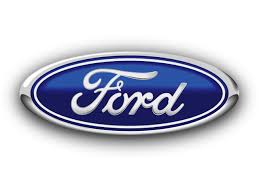F 150 Heritage 4WD Pickup V6-4.2L VIN 2 (2004)

Information Bus: Description and Operation
Communication Network
COMMUNICATIONS NETWORK
Module Communications Network Components
-
powertrain control module (PCM)
-
restraint control module (RCM)
-
instrument cluster
-
4-wheel anti-lock brake (4WABS) control module
-
generic electronic module (GEM)
-
central security module (optional)
-
natural gas vehicle module (NGVM)
PRINCIPLES OF OPERATION
The vehicle has two module communication networks: the standard corporate protocol (SCP), which is an unshielded twisted pair cable (data bus plus,
[circuit 914 (TN/OG)] and data bus minus, [circuit 915 (PK/LB)] and the international standards organization (ISO) 9141 communications network,
which is a single wire network (circuit 70 [LB/WH]). Both networks are connected to the data link connector (DLC). This makes diagnosis and testing of
these systems easier by allowing one smart tester to be able to diagnose and control any module on the two networks from one connector. The DLC can
be found under the instrument panel between the steering column and the radio.
The SCP communications network will remain operational even with the severing of one of the bus wires. Communications will also continue if one of
the bus wires is shorted to ground or voltage, or if some but not all termination resistors are lost.
The ISO 9141 communications network does not permit intermodule communication. When the diagnostic tool communicates to modules on the ISO
9141 communication network, the diagnostic tool must ask for all information; the modules cannot initiate communications.
The ISO 9141 communications network will not function if the wire is shorted to ground or battery voltage. Also, if one of the modules on the ISO 9141
communications network loses power or shorts internally, communications to that module will fail.
The powertrain control module (PCM) is on the SCP communication network. The PCM controls the engine for better fuel economy, emissions control,
and failure mode detection and storage. Refer to Symptom Charts in Computers and Control Systems for diagnosis and testing of the PCM.
The natural gas vehicle module (NGVM) if equipped is on the SCP communication network. The NGVM calculates fuel level based on inputs from the
fuel tank pressure sensor and the fuel tank temperature sensor. The NGVM then provides a voltage signal to the instrument cluster to drive the fuel
gauge. The NGVM also has separate injector drivers to run the injectors at the higher operating pressure of natural gas. The NGVM does not perform
any calculations for this function; calibration for the injectors is maintained in the PCM. Refer to Pinpoint Tests in Computers and Control Systems for
diagnosis and testing of the NGVM.
The restraint control module (RCM) is on the ISO 9141 network. The RCM controls the deployment of the air bags and pretensioners based on sensor
input. Refer to Air Bag Systems.
The generic electronic module (GEM) is on the ISO 9141 network. The GEM is equipped on vehicles with 4-wheel drive or vehicles with power
windows. The GEM controls additional functions that include:
-
speed-dependent windshield wipers
-
4-wheel electronic shift on-the-fly
-
one-touch down power window
-
belt minder (if equipped)
Refer to Multifunction Electronic Control Module (General Module).
The central security module is on the ISO 9141 communication network. The central security module controls keyless entry and door lock/unlock
functions for the vehicle. Refer to Locks.
The 4-wheel anti-lock brake (4WABS) control module (if equipped) is on the ISO 9141 communication network. The 4WABS control module controls
the brake pressure to the four wheels to keep the vehicle under control while braking.
The instrument cluster is also known as a hybrid electronic cluster (HEC) and is on the SCP communication network. The instrument cluster displays
driver information. Refer to Instrument Panel, Gauges and Warning Indicators.
